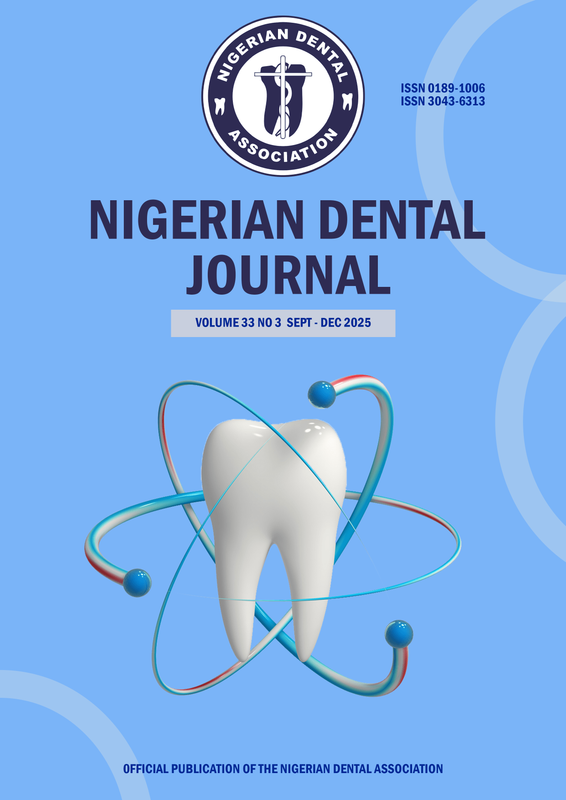Misconceptions about oral health among a group of Nigerian primary school teachers
DOI:
https://doi.org/10.61172/ndj.v20i1.121Keywords:
Oral health, Misconception, TeachersAbstract
Objective: To identify the various misconceptions that still exist among teachers about oral health practices and their incorrect ideas about dental conditions.
Method: The study was a descriptive cross-sectional study carried out between May and September 2008 among 640 primary school teachers in Oredo Local Government area of Benin City, Nigeria. Data collection was by the use of self –administered questionnaire.
Result: More than a third of the respondents (39.6%) felt that tooth decay is caused by worms, 0.3% felt it is caused by black magic. While 11.9% felt gingival bleeding is caused by worms. Tooth loss was considered a natural process by 43% of the respondents and 53.1% did not feel it is possible to keep all the teeth in the dentition for life. In addition, 23.2% did not consider tooth loss a serious health problem. Traditional medicine was used for toothache and gingival bleeding in 5.0% and 2.6% of cases respectively, while 6.5% reported self medication. Improvement of oral hygiene by toothbrushing was considered ineffective in the prevention of gum disease by 15.3% of the respondents.
Conclusion: This survey revealed that a few misconceptions still exist among teachers about what constitutes appropriate oral health practices and correct knowledge of oral diseases and remedies. These misconceptions should be corrected to prevent the teachers form impacting incorrect knowledge on the children they teach. In service training of the teachers in the area of oral health is therefore recommended.
Downloads
Downloads
Published
Issue
Section
License
Copyright (c) 2012 A. O. Ehizele, C. C. Azodo, O. Ehigiator, E. B. Ezeja

This work is licensed under a Creative Commons Attribution 4.0 International License.
Open Access Statement
- We became fully Open Access since January 2023.
- Our new and archived materials are available free of charge on open basis and under a Creative Commons license as stated below.
Copyright statement
Copyright © 1999 The authors. This work, Nigerian Dental Journal by Nigerian Dental Association is licensed under Creative Commons Attribution 4.0 International License.

